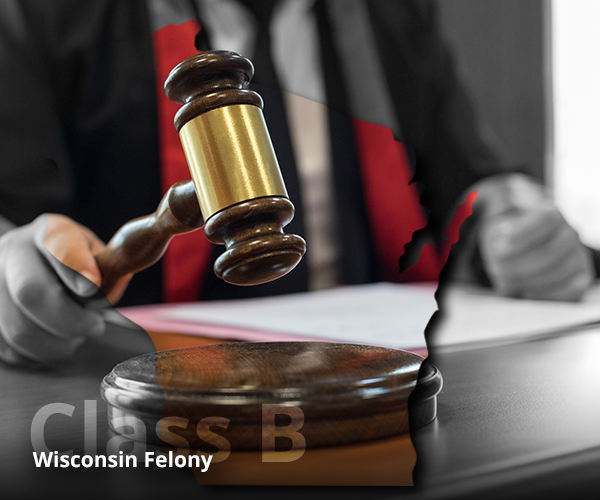Class B Felony in Wisconsin
Sentencing, Penalties, & Fines
A Class B felony in Wisconsin is punishable by up to 60 years in state prison. As the second most severe Wisconsin felony classification, a Class B felony includes offenses such as first-degree sexual assault, second-degree intentional homicide, and first-degree reckless homicide (Wis. Stat. § 939.50).
A conviction for a Class B felony carries life-altering consequences, including permanent loss of civil rights, restrictions on employment, and no possibility of expungement. If you or a loved one is facing Class B felony charges, securing an experienced defense attorney is essential. Grieve Law is ready to fight for you.
What Is a Class B Felony in Wisconsin?
A Class B felony is one of the most serious offenses in Wisconsin, carrying a maximum sentence of 60 years in prison. Unlike lower-level felonies, there are no options for probation or reduced sentencing alternatives.
A conviction results in lifelong restrictions, including loss of voting rights, firearm ownership, and employment limitations. Unlike misdemeanors or lower felony classes, a Class B felony conviction cannot be removed from your criminal record under Wisconsin law.
Types of Class B Felonies
Grieve Law has successfully defended clients facing Class B felony charges, including:
Facing Class B felony charges means the prosecution will seek the harshest penalties. Grieve Law fights back, reviewing every shred of evidence to identify weaknesses in the prosecution’s case and build strong defenses that win cases. If you’re accused of a Class B felony in Wisconsin, call Grieve Law today for a free consultation. You are only guilty if you are convicted™.

Defenses for a Class B Felony in Wisconsin
When facing Class B felony charges, understanding the legal system is critical. The prosecution must prove guilt beyond a reasonable doubt, and our attorneys challenge every aspect of their case. Our defense strategies include:
- Challenging Probable Cause: If the prosecution lacks sufficient evidence at the preliminary hearings, the case cannot proceed to trial.
- Examining Constitutional Violations: Unlawful arrests, coerced confessions, or improper searches may lead to evidence suppression.
- Motion Hearings: We aggressively file motions to dismiss charges or suppress evidence if legal violations occurred during the investigation or arrest.
- Mistaken Identity or Lack of Evidence: Many serious charges, including homicide or sexual assault, rely on flawed witness testimony or insufficient forensic evidence.
- Negotiating Charge Reductions: In some cases, felony charges can be reduced to lower offenses or dismissed altogether.
Grieve Law analyzes every detail of the prosecution’s case, challenges improper evidence, and prepares powerful defenses that get results. Our attorneys work aggressively from the initial court appearance through the trial to ensure the best possible outcome for our clients.
References: Classification of felonies: Wisconsin Statute § 939.50 (2025)



 Keeping
Keeping 